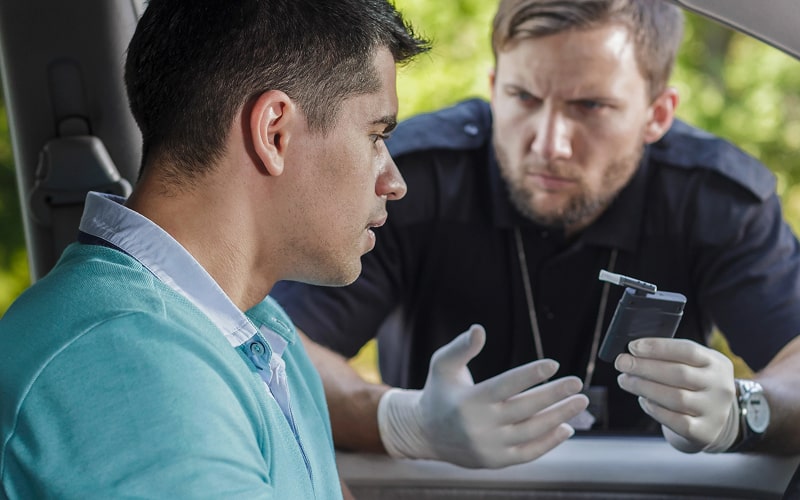Many people assume DUI charges only involve alcohol or illegal drugs. However, in Fairfax County, Virginia, you can face DUI charges even if you are taking medication prescribed by a doctor. If that medication impairs your ability to drive, the law still applies.
Prescription drug DUIs raise many legal questions. A common one is whether having a valid prescription serves as a defense. The answer isn’t as simple as yes or no it depends on various factors, including impairment, dosage, and law enforcement observations.
This article explores how Virginia handles DUI cases involving prescription medications. It explains the legal definitions, potential defenses, and the consequences of a conviction. If you or a loved one are facing DUI charges related to prescription drug use, understanding your legal options is crucial.

Understanding DUI Laws In Virginia
Driving under the influence (DUI) in Virginia isn’t limited to alcohol consumption. The Virginia Code states it is illegal to operate a vehicle while under the influence of alcohol, illegal drugs, or prescription medications that impair driving ability. Many people don’t realize that legally obtained drugs can still lead to a DUI charge in Virginia.
The law doesn’t establish a specific legal limit for most prescription medications like it does for alcohol. Instead, law enforcement and prosecutors focus on whether the drug impaired your ability to drive safely. If officers believe your driving was affected, you can be arrested and charged.
Unlike alcohol, which has a set blood alcohol concentration (BAC) limit of 0.08%, prescription drugs are assessed based on their impact on an individual. Some medications have known impairing effects, while others may only affect certain people. This makes DUI cases involving prescription drugs more subjective.
A driver may take the medication exactly as prescribed yet still be considered impaired under Virginia law. The presence of the drug alone isn’t enough to convict someone; the prosecution must prove impairment. This distinction makes defending prescription drug DUIs different from alcohol-related cases.
Virginia’s DUI laws focus on public safety, not the legality of the substance. This means that even if a drug is legally prescribed, it won’t necessarily prevent a conviction. Understanding how prescription drugs impact DUI cases is key for anyone facing charges.
Prescription Medications & Impairment
Prescription medications are meant to help people manage medical conditions, but some can negatively impact driving ability. Many drivers assume that if a doctor prescribes a medication, it must be safe to use under all circumstances. However, even legal medications can cause drowsiness, slow reaction times, or impair judgment. When these effects make driving unsafe, a person can be charged with DUI in Virginia.
It’s important to understand how prescription drugs can affect the body and mind. Some medications have strong sedative effects, while others can cause dizziness, confusion, or poor coordination. Drivers may not even realize they are impaired until they are pulled over or involved in an accident. Recognizing these risks before getting behind the wheel can prevent both legal trouble and dangerous situations.
Common Prescription Drugs That May Impair Driving
Many prescription medications list drowsiness or dizziness as possible side effects. However, not all drivers take these warnings seriously. Some of the most commonly prescribed drugs that may impair driving include:
- Opioids (e.g., oxycodone, hydrocodone, morphine). These pain medications can cause drowsiness, dizziness, and slowed reaction times.
- Benzodiazepines (e.g., Xanax, Valium, Ativan). Used to treat anxiety and insomnia, these drugs can impair coordination and focus.
- Muscle relaxants (e.g., Soma, Flexeril). These medications may cause extreme drowsiness and reduced motor control.
- Sleep aids (e.g., Ambien, Lunesta). Some sleep medications can leave lingering effects that impair driving even the next morning.
- Antidepressants and antipsychotics. Some of these drugs can cause sedation, confusion, or slowed reflexes.
Even medications taken for everyday conditions, like allergies or motion sickness, can cause impairment. Drugs such as diphenhydramine (Benadryl) can lead to significant drowsiness and delayed reaction times. Drivers must be aware of how these medications affect them before deciding to operate a vehicle.
Physician Warnings & Patient Responsibilities
Doctors and pharmacists must inform patients of a medication’s potential side effects. However, it is ultimately the patient’s responsibility to understand these effects and follow safety precautions. Medication labels often include warnings against operating heavy machinery, including vehicles. Ignoring these warnings can lead to dangerous consequences, both legally and physically.
Some patients believe that if they feel “fine,” they are not impaired. Unfortunately, impairment is not always obvious. A driver may experience slower reaction times or minor coordination issues without realizing it. This is why it’s essential to follow medical advice and observe how a medication affects driving ability before getting on the road.
The Risks Of Driving While Medicated

Driving under the influence of prescription medication isn’t just a legal issue it’s a safety risk. Impaired drivers have reduced reaction times and are more likely to make critical mistakes behind the wheel. Even a momentary lapse in focus can cause an accident, endangering the driver, passengers, and others on the road.
Many drivers assume that if they’ve taken a medication for a long time, they’ve built a tolerance to its effects. While tolerance can reduce certain side effects, it does not eliminate all risks. Some medications have cumulative effects, meaning impairment can increase over time with continued use.
Ultimately, the best way to prevent a DUI charge related to prescription drugs is to be cautious. If a medication affects coordination, concentration, or reaction time, it’s best to avoid driving until its effects are fully understood. Taking these precautions can prevent both legal consequences and serious accidents.
Is Being On A Prescribed Drug A Valid Defense?
Many people assume that if they have a valid prescription for their medication, they cannot be charged with DUI. However, Virginia law does not make a distinction between legal and illegal substances when it comes to impaired driving.
The key issue in a DUI case is not whether the drug was legally prescribed but whether it impaired the driver’s ability to operate a vehicle safely. Simply having a prescription does not automatically provide a defense against DUI charges.
With prescription medications, prosecutors focus on proving impairment through field sobriety tests, officer observations, and toxicology reports. This makes defending a prescription drug DUI highly fact-specific and dependent on the details of the case.
The “Prescription Defense” Explained
While having a prescription can sometimes help in a DUI case, it does not guarantee a defense. A driver may argue that they took the medication exactly as prescribed and were not impaired. However, this defense is only viable if the prosecution cannot prove that the medication negatively affected the driver’s ability to operate a vehicle.
In some cases, a person may not have been aware of the impairing effects of their medication. If a doctor or pharmacist failed to warn them about possible drowsiness, dizziness or slowed reaction times, this could be used as part of the defense.
However, the court will also consider whether the driver should have known about the risks based on prescription labels and common knowledge of the drug’s effects.
Factors considered by the court:
- Impairment Evidence. Prosecutors rely on police observations, field sobriety tests, and toxicology reports to prove impairment. If an officer notes erratic driving, slurred speech, or difficulty standing, this evidence may be used against the driver.
- Dosage Compliance. Taking medication as prescribed is crucial. If a driver took more than the prescribed amount or combined it with alcohol or other substances, this weakens the defense.
- Knowledge of Side Effects. The court may consider whether the driver was aware or should have been aware that the medication could impair driving. Prescription warnings and medical advice play a role in this determination.
Ultimately, a valid prescription alone is not enough to avoid a DUI conviction. The defense must focus on showing that the driver was in full control of the vehicle and not impaired at the time of the arrest. This requires a strong legal strategy and a detailed examination of the evidence.
DUI Conviction Involving Prescription Drugs
A DUI conviction in Virginia carries serious penalties. First-time offenders may face fines, license suspension, and mandatory DUI education programs. Repeat offenses can lead to jail time and longer license suspensions.
A DUI conviction can affect employment, especially for jobs requiring driving. Professional licenses in healthcare, transportation, and government sectors may also be at risk. A DUI record can also impact car insurance rates and background checks.
Legal consequences extend far beyond the initial charges. A conviction’s financial, professional, and personal effects can last for years.
Fairfax County Criminal Attorneys: Advocating For Your Rights
At Fairfax County Criminal Attorneys, we understand how complex DUI cases involving prescription drugs can be. Our team has extensive experience defending clients against these charges.
We examine every aspect of your case, from medication effects to law enforcement procedures. Our attorneys challenge weak evidence and fight for case dismissals, reduced charges, or alternative sentencing options.
Don’t face a DUI charge alone. If you’re facing a DUI involving prescription drugs, act now. Reach out to us for the defense you deserve.
Prescription drug DUI cases in Virginia are legally challenging. While having a valid prescription is important, it does not automatically prevent a conviction. Courts focus on impairment rather than legality. A strong defense requires legal knowledge, medical insight, and careful strategy. Fairfax County Criminal Attorneys has the skills and experience to fight these charges.




